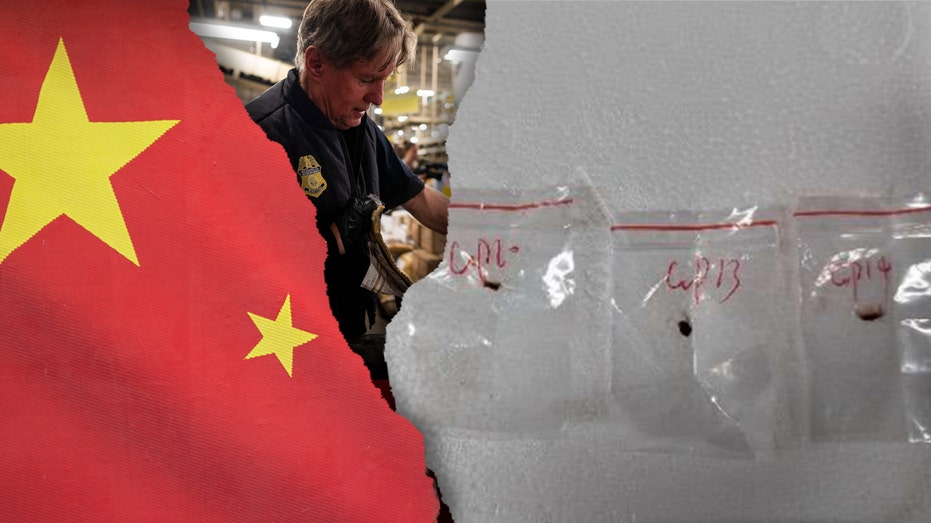Detroit Seizes ‘Agroterror’ Fungus: Michigan Lawmaker Praises State’s Strategy to Counter CCP Influence
Republicans ramp up efforts for nationwide Chinese influence protections as Gov. Whitmer's inaction leaves Michigan vulnerable.

A recent incident in Detroit involving the interception of Fusarium graminearum, a dangerous fungus deemed capable of "agroterrorism," has catalyzed renewed political debate over Chinese influence and biosecurity threats in Michigan. The fungus was allegedly smuggled into the United States by two Chinese nationals studying at the University of Michigan, raising alarms about potential vulnerabilities in both the nation’s food supply and intellectual infrastructure.
House Speaker Matt Hall, R-Kalamazoo, emphasized the seriousness of the threat, stating that he and his colleagues had raised concerns for months regarding Beijing’s growing influence in critical sectors. According to Hall, the incident underscores the urgent need for Michigan and other states to remain vigilant and prepared against foreign interference. "As speaker, I led our Foreign Influence Protection package through the State House to block CCP operatives from buying Michigan farmland, infiltrating our universities, and accessing our most sensitive data," Hall explained, adding that the legislative plan would directly counteract possible attempts at undermining U.S. agriculture and research institutions.
Hall characterized the legislative package as the nation’s strongest collection of protections against Chinese Communist Party interference, but claimed its progress is being stymied by Senate Democrats and the governor’s office. Requests for comment from Governor Gretchen Whitmer and Senate leadership were not immediately answered. "Their inaction means our farmland, our military bases, and our universities are still at risk," Hall asserted, while also expressing support for former President Donald Trump’s efforts to limit foreign acquisition of U.S. land and resources.
The intercepted fungus, capable of devastating U.S. grain supplies, drew swift comparisons to the coronavirus pandemic, with experts warning that even a single biosecurity lapse could result in billions of dollars in economic damage. While a spokesperson for the Chinese embassy denied knowledge of the situation and reiterated that Chinese citizens are required to obey local laws, national security voices have labeled the incident a “direct threat” to American food security.
State Republican officials have warned that federal and state oversight agencies may be compromised by sympathizers, with college campuses described as a fertile ground for CCP-backed research grants involving high-risk biological agents like Fusarium graminearum. Leaders argue that such incidents prove the necessity of enhanced legislative measures to restrict foreign influence, especially given that other states—including Arizona—have recently vetoed similar attempts to block Chinese-linked land purchases.
Tensions have further escalated in Michigan over economic partnerships between the state and Chinese companies. Republicans criticized Governor Whitmer for promoting deals with Chinese EV battery firms, including plans for a Gotion vehicle plant in Big Rapids. Chairman John Moolenaar, who leads the House Committee on the Chinese Communist Party, cited what he called "indisputable evidence" connecting Gotion High Tech to Chinese supply chains allegedly tainted by forced labor. Gotion and its affiliates, however, have categorically rejected the accusations, branding them "baseless and absolutely false."
The issue extends beyond agriculture and industry. Last October, five Chinese nationals associated with a university partnership in Michigan were charged with espionage for allegedly conducting surveillance near Camp Grayling, the state’s largest National Guard training facility. In response, Michigan lawmakers are considering measures that would block schools from accepting foreign grants tied to anti-American agendas, bar certain data-mining applications from government devices, and scrutinize the use of technology—such as drones—from Chinese manufacturers by law enforcement and municipal governments.
As the debate intensifies, Michigan legislators are calling for comprehensive, state-led action to safeguard not only local interests but national security at large. "We will expose every CCP operation, root out every vulnerability and mobilize every state resource to secure Michigan—farmland, universities, and beyond," Hall declared, underscoring the growing momentum for tighter controls on foreign involvement in critical U.S. sectors.




